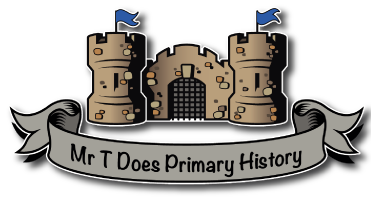Pupils should continue to develop a chronologically secure knowledge and understanding of British, local and world history, establishing clear narratives within and across the periods they study. They should note connections, contrasts and trends over time and develop the appropriate use of historical terms. They should regularly address and sometimes devise historically valid questions about change, cause, similarity and difference, and significance. They should construct informed responses that involve thoughtful selection and organisation of relevant historical information. They should understand how our knowledge of the past is constructed from a range of sources. In planning to ensure the progression described above through teaching the British, local and world history outlined below, teachers should combine overview and depth studies to help pupils understand both the long arc of development and the complexity of specific aspects of the content.
In Key Stage 2, there are compulsory eras to study and also categories which give teachers choice. It’s important to remember that teachers have the freedom to choose what they teach and the order in which they teach it – teaching chronologically does not ensure children gain chronological understanding.
Compulsory eras to study:
- Changes from the Stone Age to Iron Age.
- The Roman Empire and it’s impact on Britain.
- Britain’s Settlement by Anglo-Saxons and Scots.
- Struggle for power between the Saxons and Vikings.
- Ancient Greece, its achievements and their influence on the western world.
There is an element of choice for the bullet points listed below. Each point must be studied but consider which of the options is most pertinent to your children’s context, locality and would offer the most enriching knowledge:
- An overview of all 4 civilisations and one of the following in depth: Achievements of the earliest civilisations: Ancient Sumer, The Indus Valley, Ancient Egypt or the Shang Dynasty of Ancient China.
- A non-European study: Early Islamic civilisation, The Maya, Benin
- A post-1066 study of a theme or aspect of British history that extends children’s chronological understanding: changing aspect of society, legacy of Roman of Greek civilisation or a turning point in British history such as the industrial revolution, migration or the First World war
A local history study. While this can seem a daunting, it offers such a wonderful opportunity for children to understand the way in which their locality developed to what they see around them today. It can also be enhanced by linking all the British history taught in Key Stage 2 to their locality… local settlements, key archaeological sites or the kingdom they would have been living in at different points through time. Take the time to contact your local museums, heritage or history groups to support as they will offer a plethora of support.
